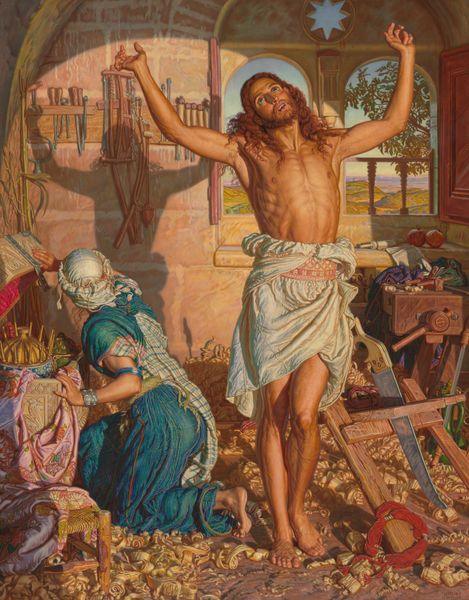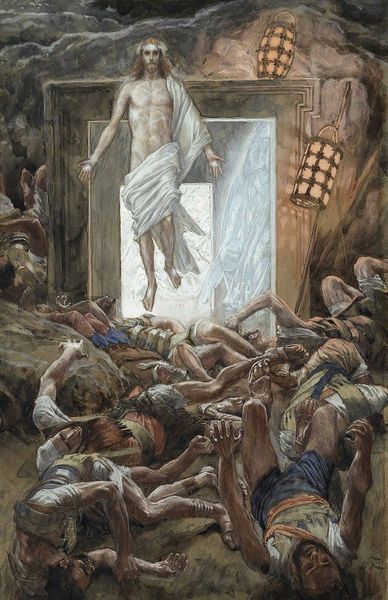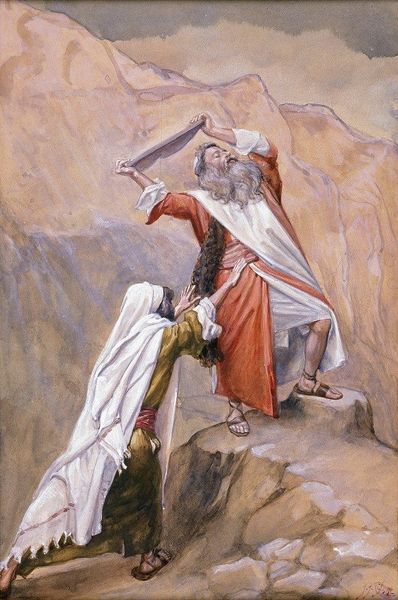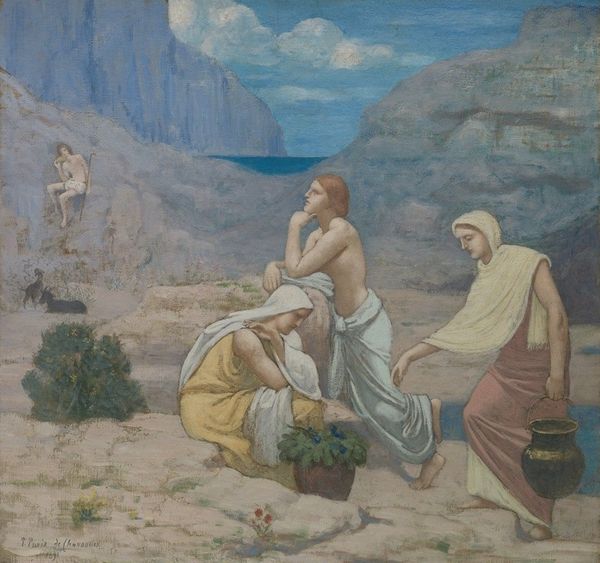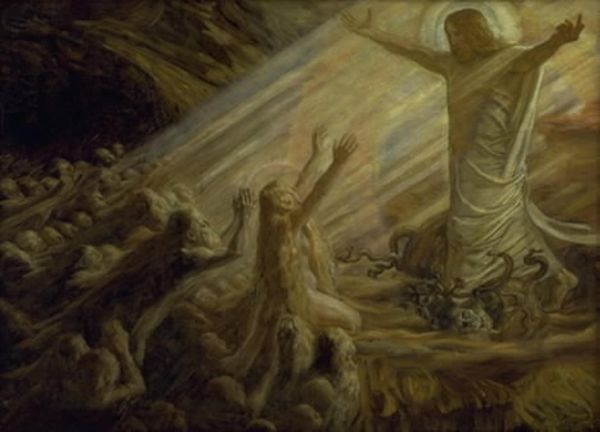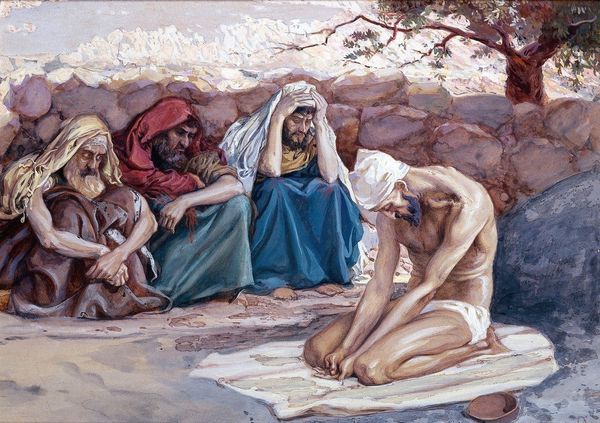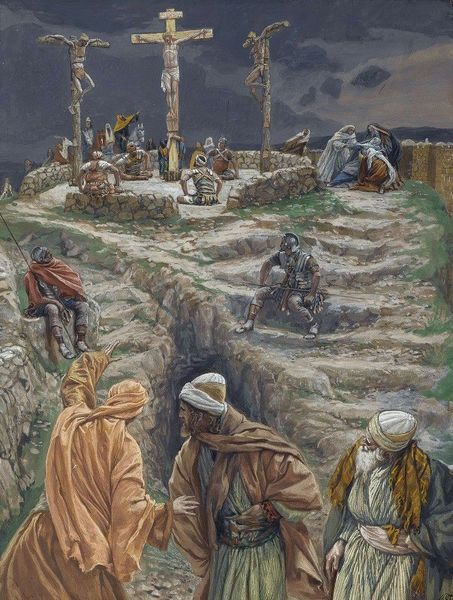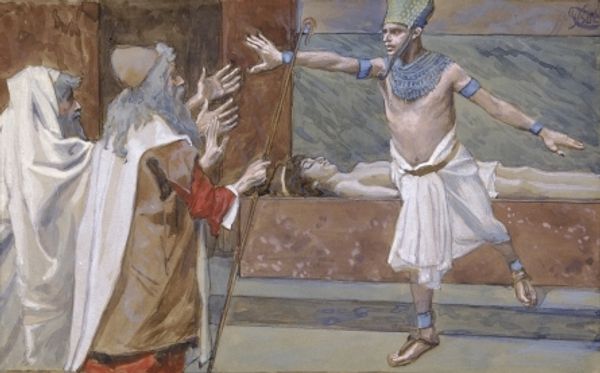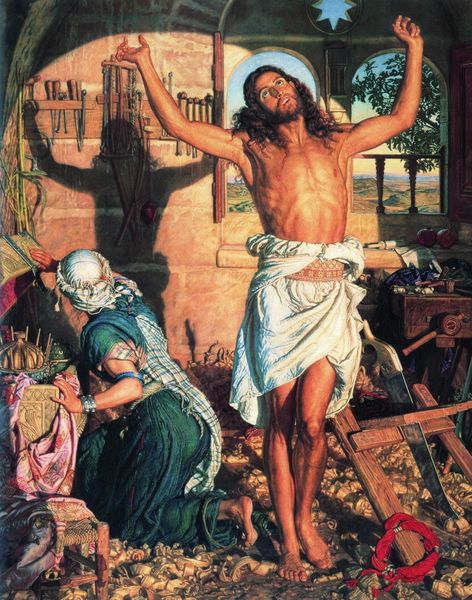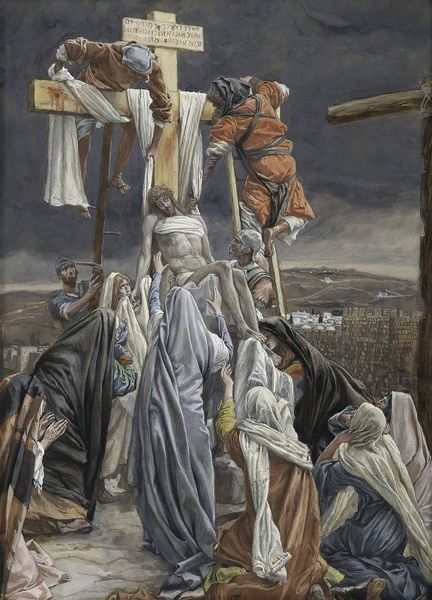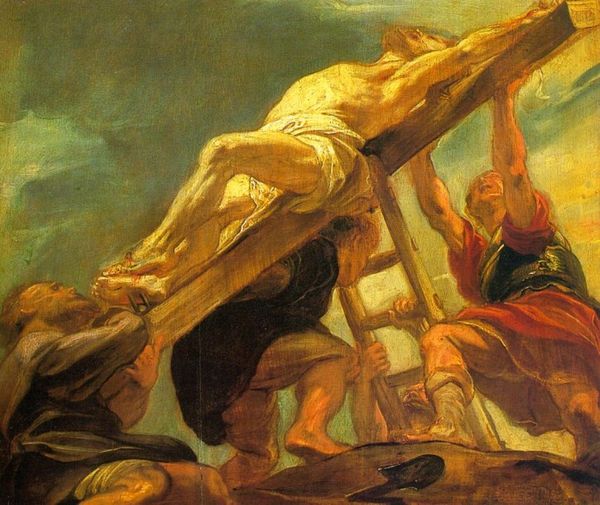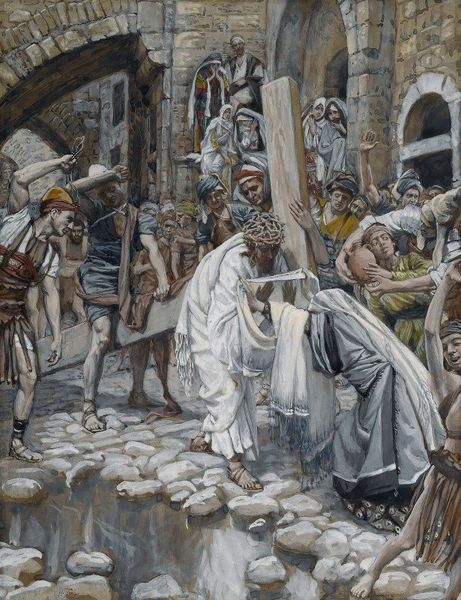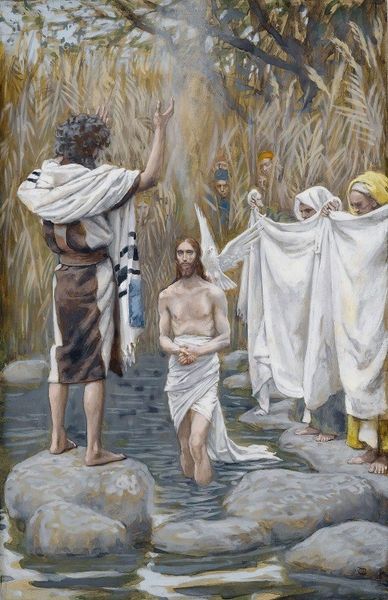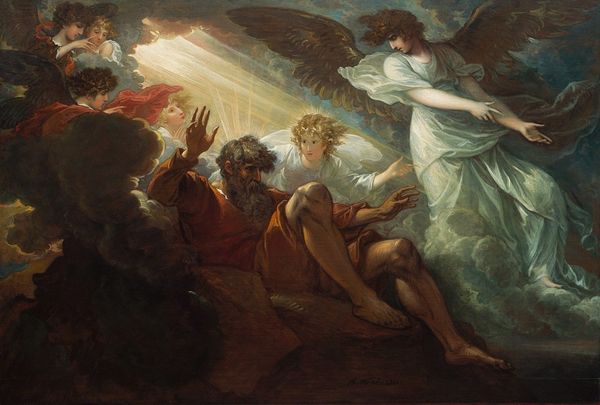
painting
#
narrative-art
#
painting
#
arts-&-crafts-movement
#
figuration
#
oil painting
#
symbolism
#
history-painting
#
academic-art
#
watercolor
Copyright: Public Domain: Artvee
James Tissot captured this scene, "The Offering of Abraham," using watercolor, an accessible and portable medium. The layering of transparent washes allows Tissot to build up form and capture the emotional intensity of the biblical moment. Look closely at the textures he creates: the rough, stacked logs of the altar, the soft wool of the ram, the flowing garments of the figures. Watercolor, unlike oil paint, requires a delicate touch, a certain deftness of hand. The artist cannot easily correct mistakes; each stroke must be deliberate. The very act of creating such a rendering speaks to the artist's devotion, a kind of offering in itself. Consider the social context: Tissot was working at a time of great religious and social upheaval, when traditional beliefs were being questioned. In his choice of medium, and his meticulous technique, Tissot seems to be reaffirming the enduring power of faith and the value of careful, considered craftsmanship. It challenges the notion that art is merely about skill.
Comments
No comments
Be the first to comment and join the conversation on the ultimate creative platform.
